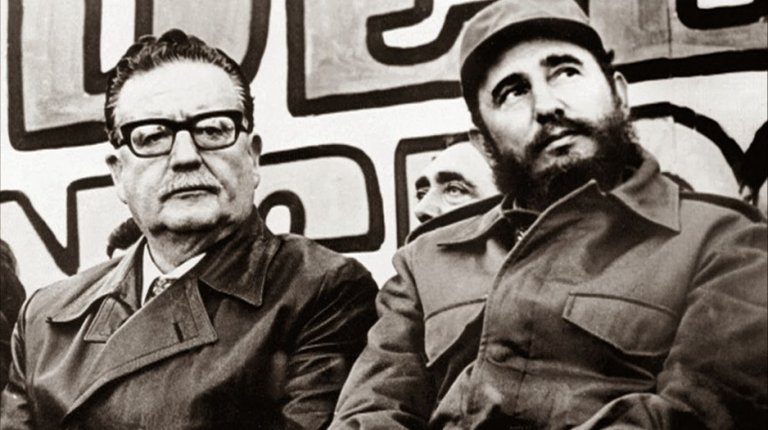
Chile's Socialist government under Salvador Allende was short lived but interesting, as much as there was a coup that overthrew the government because of Social unrest and ongoing political tension, the government had one interesting idea, that whether they knew it at the time would spark the imaginations of Socialists and Communists across the world. Sparking a movement that not just evolved with the times but has actually started to embrace new technological advancements, seeing it as useful in a Socialist or Communist system. So what was Project Cybersyn and why has it sparked a new ideology like "Cyber Communism" long after its death?
Project CyberSyn aka Cyber Synergy was a idea of planning the Economy using a central system of Computers, that took input from the factories and businesses across Chile and planned the Economy according to how much they produced, how much it cost to pay the workers, etc and planned the Economy according to the information that was given to the computer via the computer panels installed in every factory across the country. The system was a success in that the number of strikes lowered as well as cost of goods, since there was a more efficient way of factories communicating with each other as well as businesses they could make deals for materials with.
The idea of a computer controlled Economy is something straight outta a Science-fiction movie, and the fact that it existed and had some success in the 70s is inspiring to Socialists and Communists all over the world. The second reason being is that, when talking to people about the state ownership over the means of production, a lot of people take issue with the state owning it and planning the economy around it, because people are corruptible. If you take the people aspect out of it then you could easily make it a democratic process, a system decided by everyone, that works for everyone.
One of the many ideas pushed around at the present day comes from Paul Cockshott who is a Computer Scientist and Reader at the University of Glasgow in Scotland. According to Cockshott, this type of Cyber-Economy could be made democratic under a Socialist system. With the advancement of the internet, quantum computers and other modern technology, it is not unfeasible to say that this kind of system would work long term assuming that the right kind of precautions were taken to ensure that no outside meddling with the economy happened.
The main idea being that on top of having a direct e-democracy where people could vote for bills and new laws without leaving their home or work via the comfort of their computer or phone, people could also have a say in what the economy should be working on, if people had a issue with how much their homes were costing to rent, the system would work on cheaper but still reliable materials to build new houses or renovate the old ones to make them more cost-effective, another example would be people could tell the system they are displeased with how the public transport is, and if enough people agreed the system would put aside money into improving the public transport and so on.
This all sounds great, but what about the possibility of someone meddling with the economy from the outside? Well, i'm no computer scientist, but according to recent developments in encryption and quantum computers, we won't need to worry about the possibility of someone hacking into the website or program this kind of system would use for communicating with its workers or people, since quantum computers are almost impossible to hack into, and even then if the person/government is trying that hard to destroy another countries economy (again, cough America cough) it's not that difficult to deduce who and point the finger at whose doing it.
Well i presume it's half ignorance half fetishization of the "old way of doing things". Modern Communist parties either want have great ideas of how to run industry but barely have any grounding economically, or they have great ideas on running the economy but no standing industrially. Like i said in a past post, many Communist and Socialist parties tend to love the old theories so much they don't like change or adapting so they stick to 1920s ways of organising, protesting and running for office (with barely a leg to stand on policy wise).
The other reason is, it's not a popular idea. Not because there's something wrong with it, just people don't know much about the history or that this kind of Economy is even plausible. If people spoke about it more, then these old communist parties would likely change their tune on the idea and start working on actual policy to make it happen in their countries, but until everyone is talking about it, it's just me and a bunch of tech/economic nerds on the internet talking about how great it would be to implement
Ancoms writing about central planning? what a meme. Good write up though!